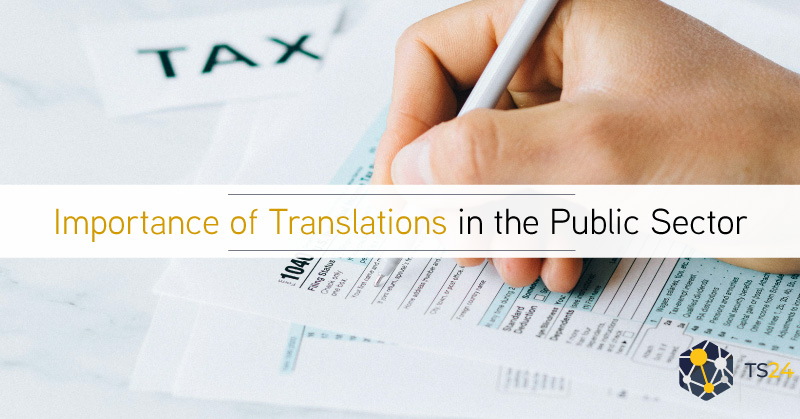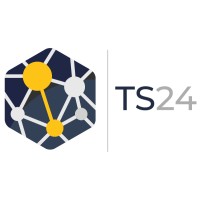Public Sector Documents Requiring Professional Translations
Did you know that over 300 languages are spoken in London alone? More than 7,000 languages are spoken globally today, reflecting the world’s linguistic diversity.
This also means that accurate translations are very important, especially when it comes to public sector documents related to public health, safety, and legalities.
If these documents are released in an unfamiliar language, the message can get lost. Since the stakes are high, misinterpretations can lead to serious consequences, such as noncompliance, ignorance, health risks, or failure to follow safety protocols. Therefore, you need a professional translation service provider to ensure this information is accessible to everyone.
Why Professional Translation Service Matters in the Public Sector
At some point, we may receive a tax notice, a court summons, or a fine from a government agency. Imagine receiving that in a language you don’t understand. It wouldn’t just be frustrating; it could also lead to serious legal trouble and even put your safety at risk. Unfortunately, many non-English speakers face this when public sector documents aren’t accurately translated.
Poorly translated documents – or even machine-generated ones – can lead to misinterpretations with severe consequences. Just one mistranslation can lead to wrongful arrests, denial of public benefits, and even medical mishaps. This is precisely why expert translation services that are accurate and culturally appropriate are essential.
EXPERT’S TIP: Find out which 10 business sectors are more reliant on professional translation services
Key Public Sector Documents That Benefit from Professional Translation Services
There are three broad categories of public sector documents: communications, legal, and administrative. These documents are essential as they bridge the gap between the general public and the government. Translating them accurately is the key to maintaining law and order and inclusivity in a country.
Communications
The government must ensure that critical messages reach the whole community. No matter what their population’s native language is, they must fully understand the message the government is conveying. Usually, the first place people head to get information about government regulations, services, or benefits is their website.
All online resources should be translated accurately so that all non-English speakers can easily access vital information, including tax guidelines and healthcare options.
Many people rely on social media for real-time updates, so all content available on social media handles should be translated into multiple languages to keep the diverse community informed about important messages, including safety alerts, policy changes, weather warnings, or elections.
Legal Documents
Mistranslating legal documents can lead to disputes or the denial of services. Unfortunately, legal language is quite complex, including a wide range of jargon, terminology, and intricate wordings.
So, when translating legal documents like government contracts, procurement agreements, immigration documents, including visas, applications, etc., accuracy is key. This will reduce the chances of disputes and minimise ambiguities.
Administrative Documents
Government office employees may come from different cultures or linguistic backgrounds. Each employee, regardless of their native language, needs to understand workplace guidelines clearly to ensure they remain compliant and safe. Organisations and institutions like the Home Office or UK Gov must provide materials or administrative documents in multiple languages to help them better understand workplace policies, safety protocols, and other SOPs. This is where certified translations are essential.
Accurate Translations and Inclusion
Diversity today is part of our community. Since the aim of government documents is to serve all citizens regardless of their ethnicity, culture, background, and place of residence, they should ensure that accurate communication reaches each individual.
In countries with a high number of people from different backgrounds, multiple languages are a reality. Accurate translations of public sector documents are a powerful tool for encouraging inclusivity.
So, governments that invest in high-quality translations for these non-English-speaking residents show a high level of care for the citizens cultures and languages. They recognise diversity and include all of their citizens regardless of their differences.
Citizens should have access to all the necessary information to make informed decisions for themselves and their families. Governments should communicate health, safety, and legal information clearly and accurately.
Accurate translations equip all residents with the tools to understand their rights and responsibilities—whether they’re applying for public assistance, responding to an emergency, or dealing with taxes. They ensure no one is left in the dark due to the language barrier.
EXPERT’S TIP: Are you looking for a translation agency to work with? Find out why TS24 is considered one of the best translation providers in the UK.
Consequences of Poorly Translated Public Sector Documents
We usually don’t think much of translating documents — until something goes wrong. But even a single mistranslation can have far-reaching consequences and, in some cases, change lives entirely.
In the legal environment, misinterpretations can lead to missed deadlines, denied citizen rights, and even wrongful arrests. If a court order isn’t correctly translated, a person could unknowingly violate their probation time, leading to possible arrest.
Here’s a real-world example where things went wrong due to a simple oversight:
In 2017, a worker at a UK factory tragically suffered an accident that put his life at risk. He was a non-English speaker and could not understand the safety procedures and guidelines, which the factory had poorly translated. As a result, he sustained multiple fractures after being struck by heavy machinery.
AI Translations Limitations
With AI & machine translations taking the lead today, why not get everything translated via AI tools? Unfortunately, we still have a long way to go with AI translations. These machines don’t understand cultural nuances, regional sensitivities, or legal jargon.
Even the most powerful AI translation can miss these critical aspects, leading to conflicts, confusion, and legal consequences. For public sector translations, we need certified professional translation services that don’t just translate words literally but ensure every clause, term, and jargon makes sense. They also check for cultural sensitivity and ensure the document does not sound offensive and resonates with the audience.
Conclusion
Poor translations are like a tiny leak that can sink the whole ship. Whether it’s health guidelines, legal contracts, or public communications, they must be translated accurately into the language of your audience and be culturally appropriate for each individual. Only then can you ensure safety and clarity.
Sometimes, a small error can lead to misinterpretations, legal disputes, or life-threatening situations. So, you should rely on a professional translation service provider to ensure every word serves its intended purpose.
About TS24
Translation Services 24 (TS24) is a professional translation agency offering expert services in over 200 languages. We work with clients in all corporate and public industries and specialise in sector-specific linguistic solutions. With over a decade of experience in the industry, 15+ million words converted every year and 100,000+ projects completed, TS24 is a leading provider of expert translations and interpretation services and an officially certified member of the ATC. Contact TS24 here. You can also read all of our recent articles here.
Follow Translation Services 24 on Social Media






